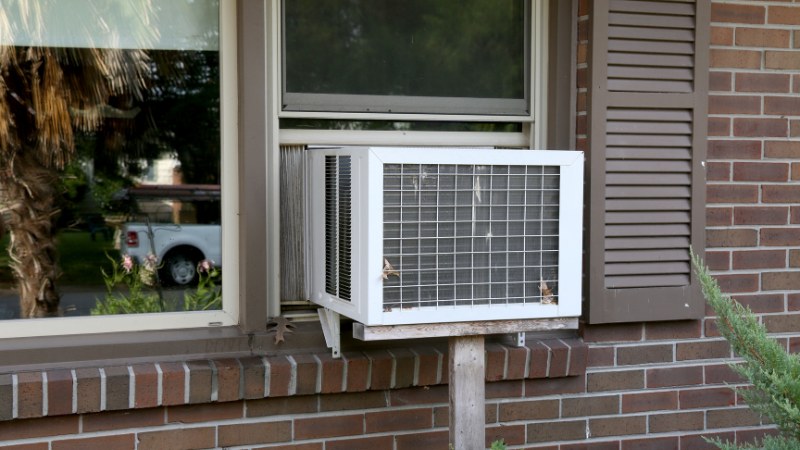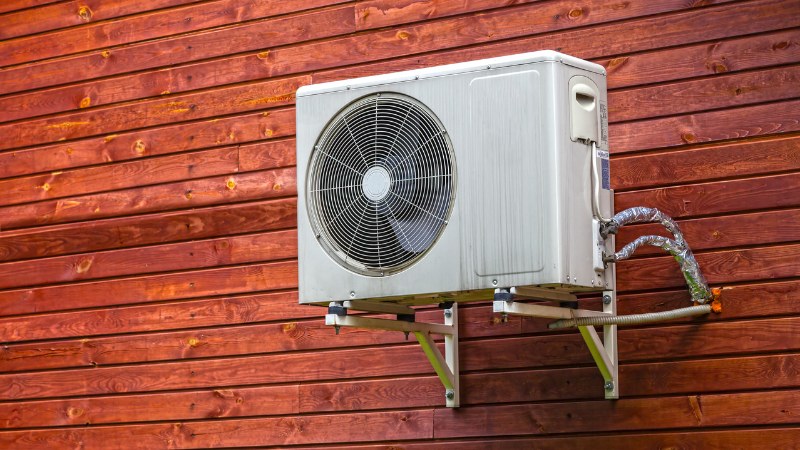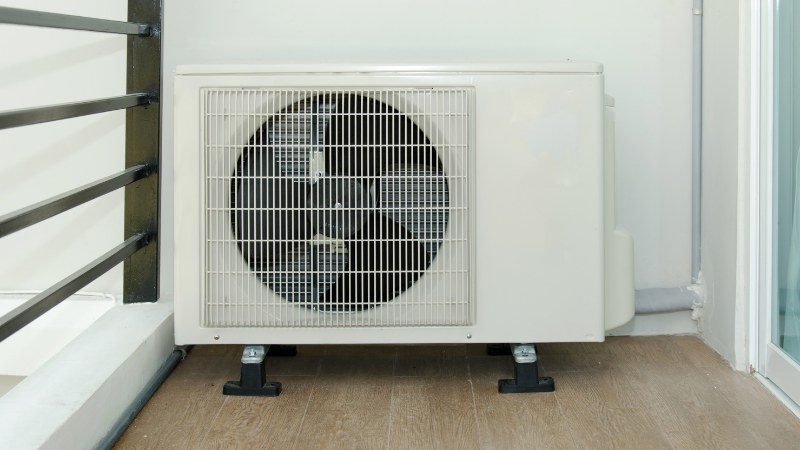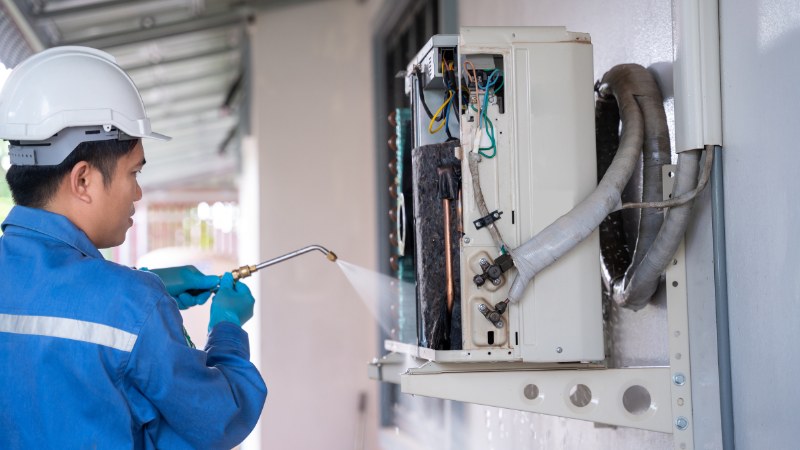Noise from the outdoor unit of an air conditioner is a familiar sound in every household. However, if this noise becomes unusually loud, it may indicate underlying issues that affect the efficiency and longevity of the unit. Let’s delve into the reasons why the outdoor unit of an air conditioner may be making excessive noise, assess the impact, and provide appropriate solutions to ensure the safety of users and extend the lifespan of the appliance.
1 Why is the Outdoor Unit of the Air Conditioner Noisy?
The loud operation of the outdoor unit not only disrupts the peace and quiet of your home but may also indicate potential damage to the appliance. According to experts, there are four main reasons for this issue:
Damage or Loss of Rubber Padding Under the Outdoor Unit
The primary function of rubber padding is to reduce vibration and provide stability to the outdoor unit.
When the rubber padding becomes hardened, torn, or lost, the outdoor unit will vibrate excessively during operation, emitting loud noises.
Lack of Cleaning and Maintenance of the Outdoor Unit
Dust, leaves, and insects can accumulate on the fan, grill, and internal components of the outdoor unit, impeding airflow and causing noise when the fan operates.
Dust and debris also reduce the efficiency of heat exchange, causing the outdoor unit to work harder, which can lead to increased noise levels.
 Lack of Cleaning and Maintenance of the Outdoor Unit
Lack of Cleaning and Maintenance of the Outdoor Unit
Presence of Foreign Objects in the Outdoor Unit
Foreign objects such as branches, leaves, or trash can be blown into the unit or introduced by humans or animals during use.
When the fan rotates and comes into contact with these objects, it creates loud noises and can potentially damage the appliance.
Issues with the Outdoor Unit’s Fan
The fan is a critical component for cooling the outdoor unit.
If the fan lacks lubrication, becomes warped, has broken blades, or experiences a seized axis, its rotation speed will be uneven, resulting in loud noises and strong vibrations.
 The outdoor unit’s fan is an important component for cooling.
The outdoor unit’s fan is an important component for cooling.
2 Impact of Excessive Noise from the Outdoor Unit
The loud noise from the outdoor unit of an air conditioner has several detrimental effects on our lives and the appliance’s longevity:
-
Disrupts Peace and Comfort: Excessive noise from the outdoor unit can disturb sleep, leisure, study, and work, causing annoyance, irritability, and stress.
-
Harmful to Health: High noise levels can cause distraction, reduce memory retention, lead to headaches, ear discomfort, insomnia, and potentially contribute to cardiovascular and blood pressure issues.
-
Damages the Appliance: Loud noise decreases cooling efficiency, increases energy consumption, overloads the system, damages other components, and shortens the appliance’s lifespan.
-
Contributes to Environmental Noise Pollution: The noise from the outdoor unit affects nearby residents, diminishes the aesthetics of the installation area, and adds to the overall environmental noise pollution.
 Impact of Excessive Noise from the Outdoor Unit
Impact of Excessive Noise from the Outdoor Unit
3 Solutions to Reduce Noise from the Outdoor Unit
Here are some measures to mitigate the noise from the outdoor unit of your air conditioner:
-
Regular Cleaning and Maintenance: Clean the fan, heat exchanger, mounting brackets, and rubber gaskets periodically to remove dust, insects, and leaves that may have accumulated.
-
Inspect and Repair Components: Lubricate the fan, replace damaged fan blades and rubber gaskets, tighten screws and bolts, and repair or replace faulty circuit boards and electrical wires.
-
Refill or Release Refrigerant: Ensure the system has sufficient refrigerant and address any leaks.
-
Proper Installation: Mount the outdoor unit on a sturdy base, maintain adequate ventilation clearance, and use appropriate gas pipes and electrical wiring.
-
Avail Maintenance Services: Schedule regular maintenance as per the manufacturer’s recommendations to ensure efficient and safe operation.
 Solutions to Reduce Noise from the Outdoor Unit
Solutions to Reduce Noise from the Outdoor Unit
The loud noise from the outdoor unit of an air conditioner is not just a nuisance but also indicative of potential issues. Therefore, early detection of the cause and timely remediation are crucial. Implement the above solutions to ensure the outdoor unit operates quietly and efficiently, contributing to the protection of your health and the environment.









